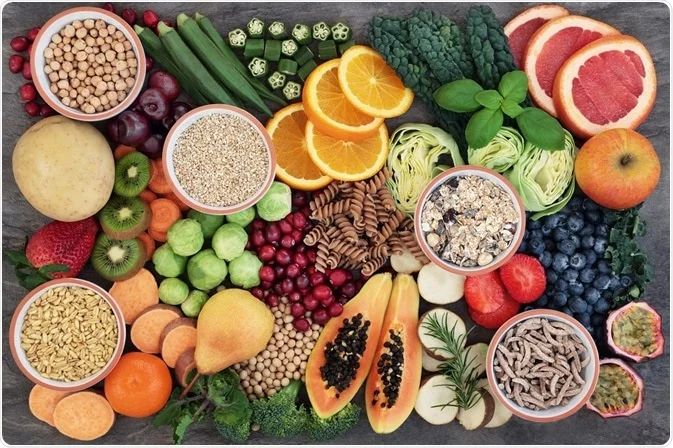The saying, “You are what you eat,” could not be truer, especially as we age. The foods we put into our bodies immensely impact our physical, mental, and emotional well-being. One nutrient that plays a crucial role in aging gracefully is fiber.
Fiber is an essential component of a healthy diet, yet it is often overlooked. In this blog post, industry expert Eric Kim UBC will dive into the role of fiber in aging and how it can significantly impact your overall health as you age.
Table of Contents
Promotes Healthy Digestion
As we age, our digestive system slows down. Consuming fiber-rich foods can aid in digestion and relieve constipation. It can also help regulate bowel movements, reduce inflammation in the gut, and prevent colon cancer.
Dietary fibers can be divided into two types: soluble and insoluble. Soluble fibers dissolve in water and form a gel-like substance, while insoluble fibers do not dissolve in water and add bulk to stool. Some examples of high-fiber foods include whole grains, fruits, vegetables, and legumes.
Reduces The Risk Of Heart Disease
As we age, the risk of developing cardiovascular diseases increases. Fibers can help lower blood pressure, reduce bad cholesterol, and reduce the risk of heart attacks, strokes, and other heart-related ailments.
Soluble fibers can bind to cholesterol and remove them from the bloodstream, while insoluble fibers can decrease cholesterol absorption by the body. Ensuring a daily fiber intake of 30-35 grams can significantly reduce the risk of heart disease.
Regulates Blood Sugar Levels
As we age, our bodies may become less efficient at producing and using insulin, leading to high blood sugar levels. Consuming high-fiber foods can help slow the absorption of sugar in the bloodstream, preventing spikes in blood sugar levels.
Soluble fibers can also improve insulin sensitivity, aiding in the management of diabetes. Incorporating complex carbohydrates, such as whole grains, legumes, and vegetables, can help regulate blood sugar levels and prevent diabetes-related complications.
Maintains Healthy Weight
Weight management can be challenging as we age. Fiber is an essential nutrient in weight management, as it makes you feel fuller for longer, reducing the chances of overeating and snacking on unhealthy foods.
It also adds bulk to your diet, reducing your overall caloric intake. High-fiber foods promote satiety, aiding in weight loss and reducing the risk of obesity-related illnesses like type 2 diabetes and heart disease.
Boosts Immune System
Our immune system may weaken as we age, making us more prone to infections and illnesses. Fibers can boost the immune system by feeding the good bacteria in the gut.
Gut-friendly bacteria can help fight infections and illnesses, boost immunity, and protect against age-related illnesses. Probiotics such as fermented foods can further enhance the gut’s microbial diversity and immunity.
Helps Prevent Chronic Diseases
Chronic diseases such as diabetes, Parkinson’s, and cancer become more prevalent as we age. Studies have shown that consuming a diet high in fiber can help reduce the risk of many chronic diseases and keep you aging happily.
Fiber can help regulate blood sugar levels, reducing the risk of developing diabetes. Additionally, high-fiber diets have been linked to a lower risk of certain cancers and cognitive decline.
Essential For Bone Health
Our bones become more fragile as we age, increasing the risk of fractures and osteoporosis. While calcium and vitamin D are essential for maintaining bone health, fiber also plays a significant role.
Fiber supports the absorption of calcium, which is essential for bone health, and can reduce inflammation in the body, preventing the breakdown of bone tissue.
Final Thoughts
Fiber is a crucial nutrient in promoting healthy aging, says Eric KimUBC. Incorporating high-fiber foods into your diet can aid in healthy digestion, reduce the risk of heart disease, regulate blood sugar levels, maintain a healthy weight, and boost immunity.
A balanced diet of whole grains, fruits, vegetables, and legumes can ensure optimal fiber intake and promote overall health and wellness. You can age gracefully and maintain a vibrant lifestyle with a little effort. Remember, there is always time to start incorporating healthy habits into your daily routine.
















